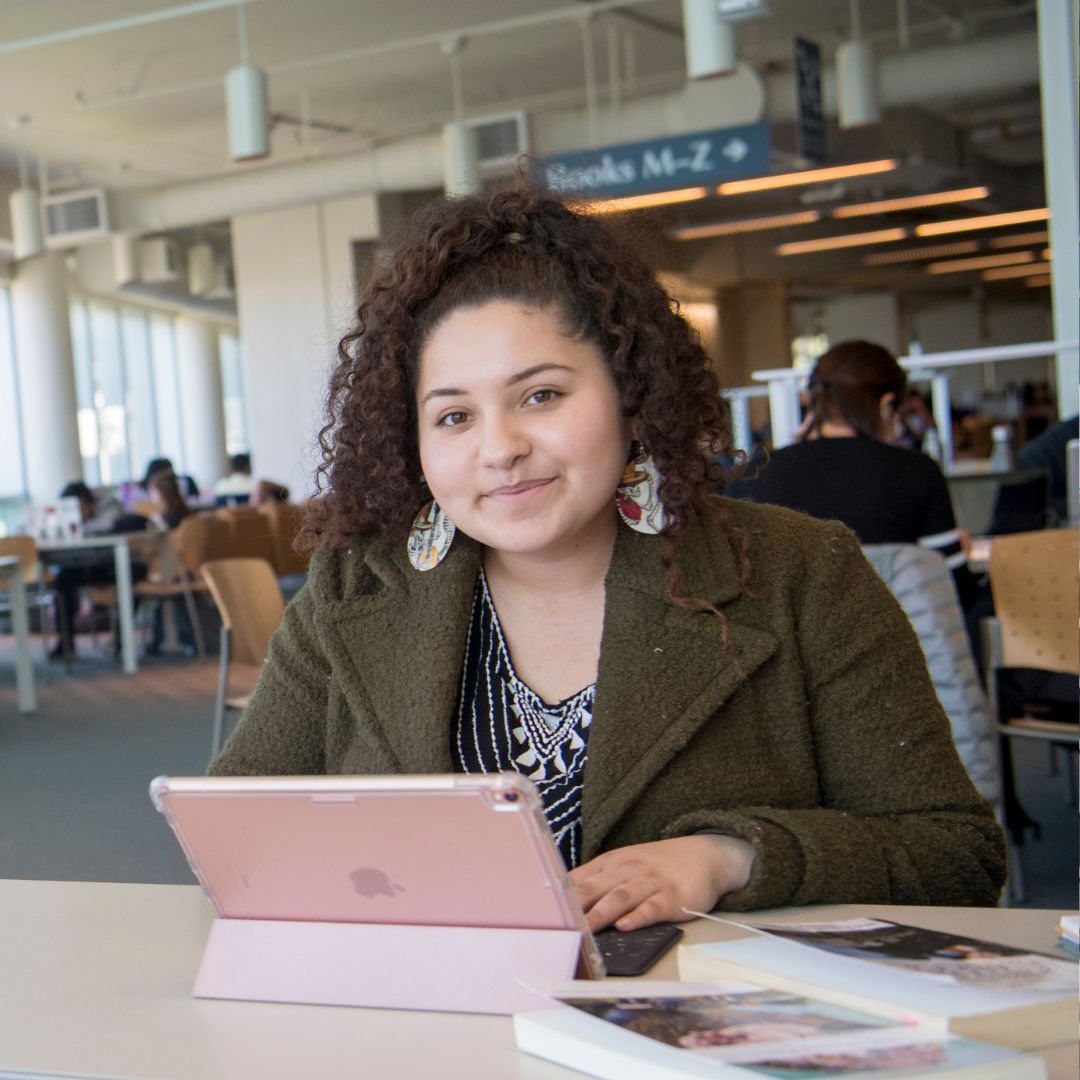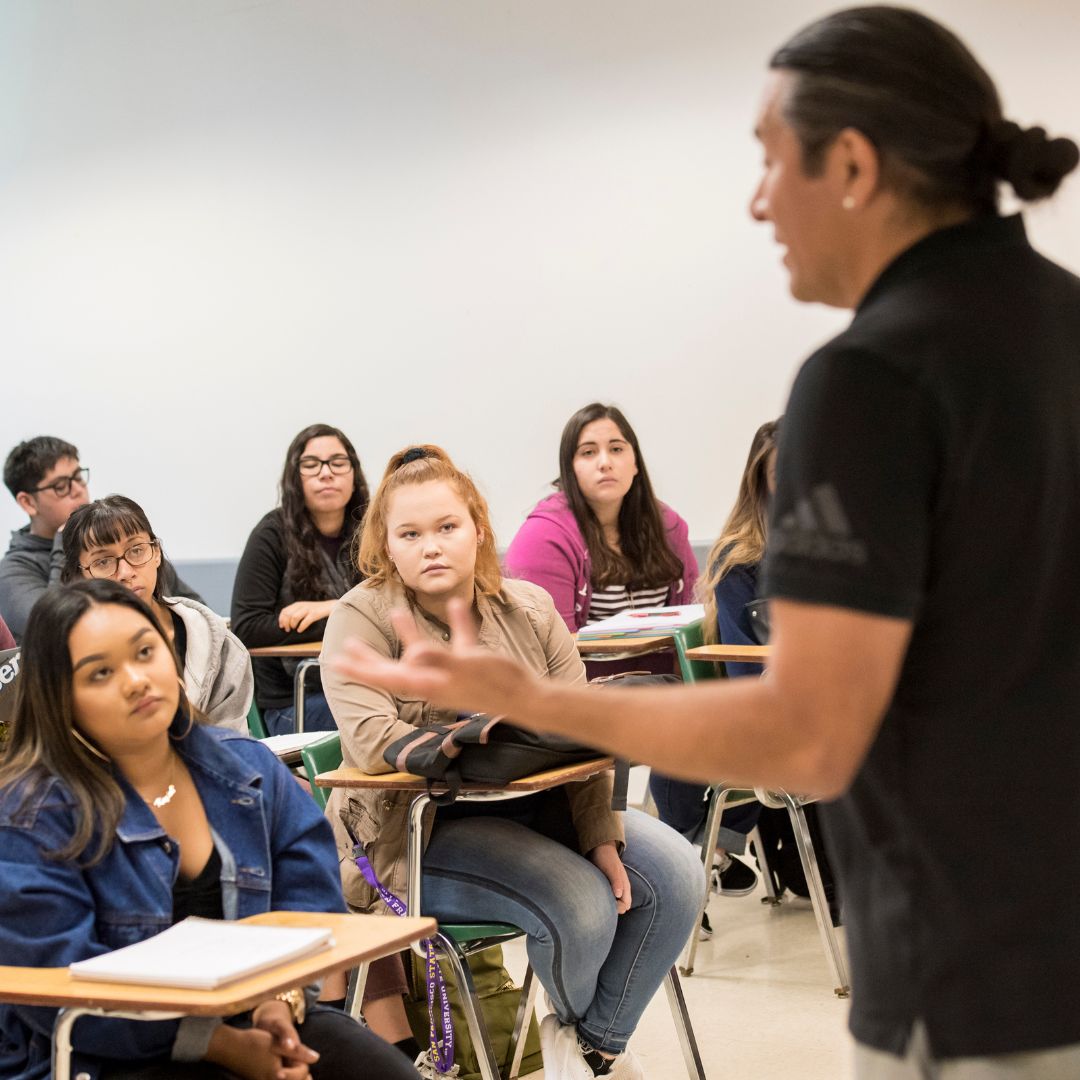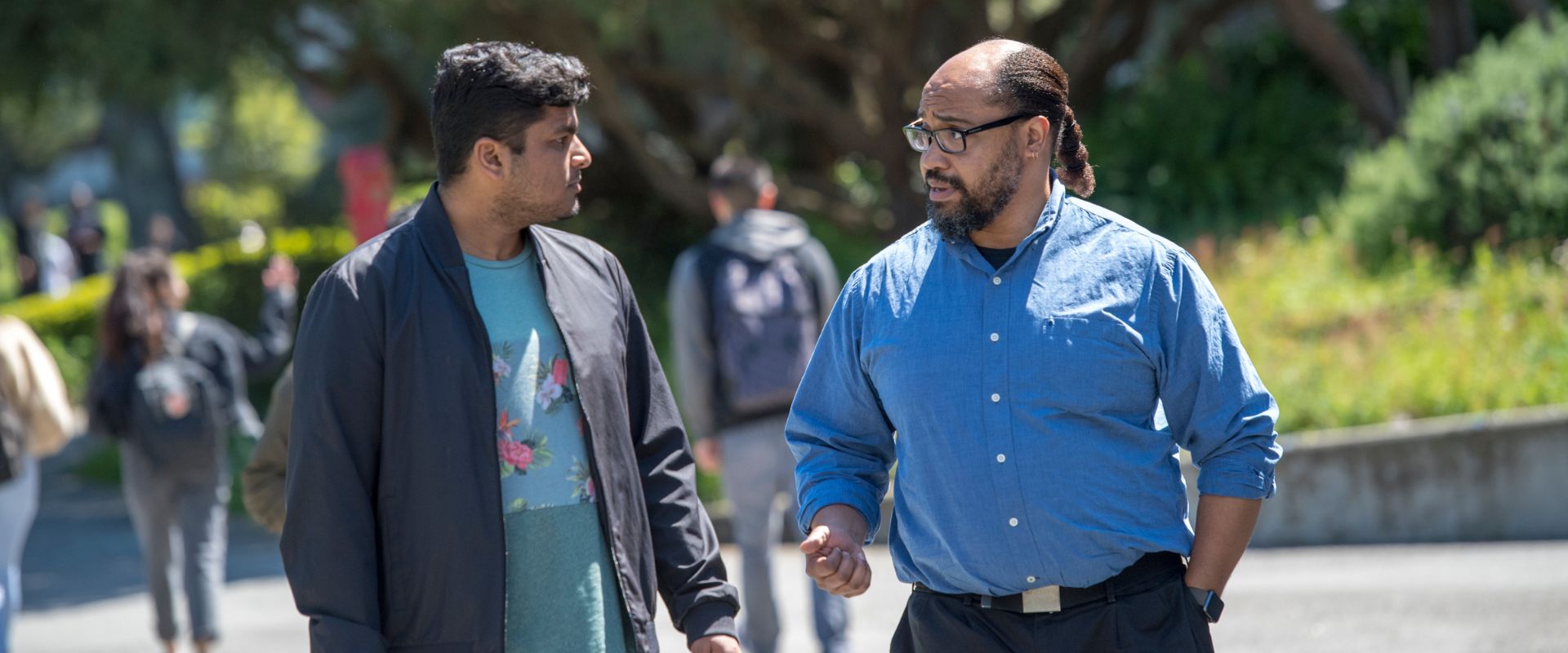Educator Training in Ethnic Studies
Strengthen your teaching and expand your understanding of race, equity and social justice. Through the Graduate Certificate in Ethnic Studies, you’ll explore inequality, activism and self-determination in communities of color and Indigenous peoples. This program helps you bring Ethnic Studies perspectives into your classroom and better support diverse student populations. If you’re currently employed with a school district or community college, you may qualify for a special educator course rate.
About the Graduate Certificate

In this program, you’ll gain the knowledge and tools to teach Ethnic Studies with confidence and purpose. You’ll learn to connect classroom lessons to community experiences and social justice movements.
As a student, you will:
- Examine U.S. history and current issues through the experiences of people of color
- Study theories of race, resistance and self-determination
- Explore strategies for equity and inclusion in education
- Gain hands-on experience through a community-based practicum
You’ll take core courses in Theories and Issues in Ethnic Studies and Ethnic Studies Community Practicum, plus two upper-division or graduate-level electives in areas such as Africana Studies, American Indian Studies, Asian American Studies, Latina/Latino Studies or Race and Resistance Studies.
Cost
If you’re a K-12 teacher or community college faculty member, you may qualify for a special course rate. This discount is not available to matriculated SFSU students.
Regular Rate: $449/unit | $1,347/class | $5,388/certificate
Educator Rate: $350/unit | $1,050/class | $4,200/certificate
Length of Study
You’ll complete four courses over one or two semesters. If you plan to continue your studies, you can work with an advisor to create a long-term plan to earn an M.A. in Ethnic Studies after finishing the certificate.
When to Start
Fall, Spring
The College of Professional & Global Education helps educators enroll in courses that count toward the Graduate Certificate in Ethnic Studies.
This program is offered by the College of Ethnic Studies, the first college of its kind in the nation. Founded in 1969 through student and community activism, the college includes departments in Africana Studies, American Indian Studies, Asian American Studies, Latina/Latino Studies and Race and Resistance Studies. Its courses and programs promote equity, self-determination and a deeper understanding of the experiences of people of color in the United States.
The Graduate Certificate in Ethnic Studies is a 12-unit program that combines theory, research and community engagement. You’ll take two required courses and choose two electives from the College of Ethnic Studies.
Required Courses (6 units)
- ETHS 710 Theories and Issues in Ethnic Studies
- ETHS 750 Ethnic Studies Community Practicum
Electives (6 units)
Choose two upper-division or graduate-level courses from any of the following areas:
- AFRS Africana Studies
- AIS American Indian Studies
- AAS Asian American Studies
- LTNS Latina/Latino Studies
- RRS Race and Resistance Studies
- ETHS Ethnic Studies
About one-third of classes are offered online each term, and on-campus attendance is not required.
Get the full details in the SFSU Bulletin.
How to Enroll

To be eligible for the special educator rate, sign up through the College of Ethnic Studies before the class start date.
Create your SFSU ID and follow the instructions to create your SFSU Password.
Choose upper-division or graduate classes from AFRS, AIS, AA S, LTNS, ETHS or RRS.
Complete the application form before classes start.
Contact
College of Ethnic Studies | (415) 338-1693 | ethnicst@sfsu.edu
